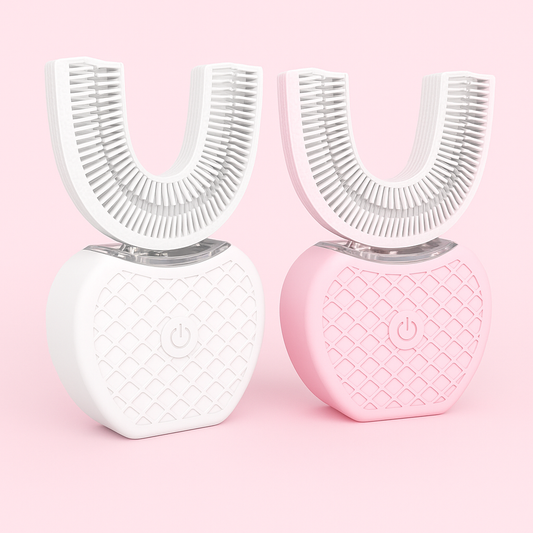Introduction
As devoted pet owners, we all want our dogs to be happy, healthy, and comfortable in every way — including having fresh breath! Bad breath, medically known as halitosis, is a common issue in dogs and can often be a sign of dental problems or other underlying health concerns. In 2025, with increased awareness about natural pet care, many owners are turning to effective, natural remedies to keep their furry friends’ breath fresh and mouths healthy.
This comprehensive guide will explore 10 natural remedies that you can easily incorporate into your dog’s daily routine to maintain fresh breath and promote overall oral hygiene. From dietary tweaks to natural supplements and preventive care, these methods are safe, effective, and vet-approved.
1. Regular Brushing with Natural Toothpaste
Brushing your dog’s teeth regularly is the most effective way to prevent bad breath. Unlike human toothpaste, which contains ingredients toxic to dogs, natural dog toothpaste uses safe, gentle ingredients like baking soda, aloe vera, and coconut oil. These ingredients help neutralize bad odors and prevent plaque buildup.
Tips for brushing your dog’s teeth naturally:
- Start slowly and be patient as your dog gets used to the process.
- Use a soft-bristled toothbrush designed for dogs or a finger brush.
- Brush at least 3-4 times a week for best results.
- Reward your dog with praise or a small treat afterward to create a positive association.
Regular brushing reduces tartar buildup, which is a major cause of bad breath and dental disease.
2. Incorporate Fresh Herbs into Your Dog’s Diet
Certain fresh herbs have natural antibacterial and breath-freshening properties. Adding these to your dog’s meals can improve oral health and combat odor-causing bacteria.
Herbs safe for dogs and beneficial for breath include:
- Parsley: Rich in chlorophyll, parsley helps neutralize bad breath and freshen the mouth.
- Mint: Peppermint can soothe the digestive tract and reduce oral bacteria but should be used sparingly.
- Rosemary: Contains antioxidants and antimicrobial properties that support dental health.
- Thyme: Helps fight bacteria and freshens breath naturally.
Always introduce herbs gradually and in small quantities to monitor for any adverse reactions.
3. Use Coconut Oil as a Natural Breath Freshener
Coconut oil is a versatile and popular natural remedy for dogs’ oral health. It contains lauric acid, a medium-chain fatty acid with strong antibacterial and antifungal properties that help reduce mouth bacteria.
How to use coconut oil effectively:
- Add a teaspoon of organic, virgin coconut oil to your dog's food daily.
- Use a coconut oil-coated finger or soft cloth to gently rub your dog’s gums and teeth.
- Some owners mix coconut oil into homemade dog treats to boost dental benefits.
Besides freshening breath, coconut oil can also improve skin, coat, and digestion.
4. Add Probiotics to Support Oral and Gut Health
Probiotics, or beneficial bacteria, balance the microbiome in your dog’s gut and mouth, which can positively impact breath and overall health.
Benefits of probiotics:
- Reduce the growth of harmful bacteria in the mouth that cause bad breath.
- Support immune function and digestion.
- Help reduce inflammation in the gums and oral tissues.
How to incorporate probiotics:
- Use dog-specific probiotic supplements available in powders, capsules, or treats.
- Include probiotic-rich foods like plain, unsweetened yogurt or kefir (after consulting your vet).
Always choose high-quality probiotics formulated for dogs and consult your veterinarian before starting any new supplement.
5. Offer Crunchy Fruits and Vegetables as Natural Chew Treats
Crunchy fruits and vegetables can help mechanically clean your dog’s teeth as they chew, reducing plaque and freshening breath.
Recommended breath-friendly options:
- Carrots: Low in calories and great for cleaning teeth.
- Apple slices: Provide natural sweetness and fiber, but always remove seeds and core.
- Cucumber: Hydrating and gentle on the stomach.
- Sweet potatoes: Can be dehydrated and given as chewable treats.
Introduce these treats in moderation to avoid digestive upset and always supervise your dog while chewing.
6. Provide Natural Dental Chews and Toys
Natural dental chews and toys encourage chewing behavior that helps scrape away plaque and massage gums.
What to look for:
- Chews made with natural, non-toxic ingredients without artificial preservatives or flavors.
- Durable toys with textured surfaces designed to clean teeth.
- Products approved or recommended by the Veterinary Oral Health Council (VOHC).
Chewing also helps reduce stress and boredom, promoting overall well-being.
7. Ensure Your Dog Stays Properly Hydrated
Water is essential for maintaining oral hygiene. Fresh water helps wash away food debris and bacteria that accumulate in your dog’s mouth throughout the day.
Hydration tips:
- Always provide clean, fresh water in an accessible bowl.
- Change water daily to prevent bacterial growth.
- Consider adding water fountains designed for pets to encourage drinking.
Proper hydration supports saliva production, which naturally helps keep the mouth clean.
8. Use Natural Mouth Rinses for Dogs
Natural mouth rinses can help reduce oral bacteria and freshen breath when used appropriately.
Popular natural rinses include:
- Diluted green tea: Contains antioxidants and has antibacterial properties.
- Chamomile tea: Soothes gums and reduces bacteria.
Always ensure rinses are cooled and diluted, and consult your veterinarian before use. Avoid rinses containing alcohol or harmful chemicals.
9. Maintain a Balanced and High-Quality Diet
Your dog’s diet plays a crucial role in oral health. Feeding a well-balanced, nutritious diet helps support strong teeth and healthy gums.
Dietary recommendations:
- Choose premium dog foods with real meat, vegetables, and minimal fillers.
- Avoid foods with excessive sugars and artificial additives that contribute to plaque buildup.
- Consider adding supplements like omega-3 fatty acids to reduce inflammation.
Consult your veterinarian or a pet nutritionist to tailor the best diet for your dog’s specific needs.
10. Schedule Routine Veterinary Dental Checkups
Even with diligent home care, professional dental checkups remain essential. Vets can detect early dental disease, perform thorough cleanings, and provide personalized advice.
Why vet visits matter:
- Early diagnosis of gingivitis, periodontal disease, or other oral health problems.
- Professional cleaning under anesthesia to remove tartar and plaque that home care can’t reach.
- Tailored treatment plans and recommendations for ongoing care.
Regular vet visits ensure your dog’s oral health stays on track and prevent serious complications.
Bonus Tips for Maintaining Fresh Breath
- Limit table scraps: Human foods can contribute to bad breath and digestive issues.
- Monitor your dog’s breath regularly: Sudden changes may indicate health problems.
- Keep collars and bedding clean: Bacteria can accumulate on items your dog frequently uses.
- Practice good overall hygiene: Regular baths and grooming support overall health that reflects in oral health.
Conclusion
Maintaining your dog's fresh breath and oral health in 2025 doesn’t have to be difficult or rely on harsh chemicals. By combining these 10 effective natural remedies — from regular brushing with natural toothpaste to dietary improvements and routine vet care — you can protect your dog’s smile and overall well-being.
Remember, every dog is unique, so always consult your veterinarian before starting new treatments or supplements. With patience, consistency, and care, your dog will enjoy fresher breath, healthier teeth, and a happier life. Here's to many more tail-wagging greetings with a fresh, clean kiss!


